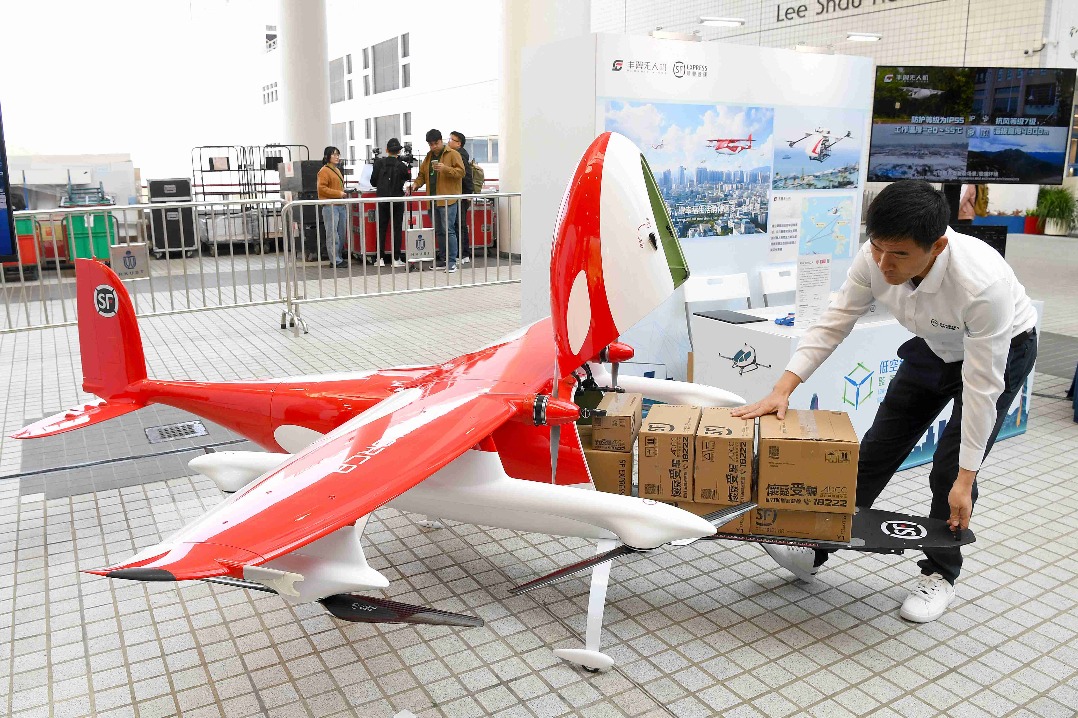Maritime industry to deepen 'openness, collaboration'

Openness and collaboration will be critical for the global port and shipping industry to work toward a more stable international trade order and a resilient world economy amid rising uncertainty and disruptions, said officials and maritime industry insiders at a forum on Tuesday.
Against the backdrop of a volatile international situation, the port and shipping industry faces both new opportunities and challenges, said Wang Gang, China's vice-minister of transport, at the 2025 Maritime Silk Road Port Cooperation Forum in Ningbo, a port city in East China's Zhejiang province.
"We stand ready to work with all stakeholders to unite our efforts, foster development consensus through collaboration, share development opportunities, jointly meet challenges, and propel the global port and shipping industry toward higher-quality and higher-level development," he said.
Ocean shipping is the backbone of international trade, according to the United Nations Trade and Development, and moves more than 80 percent of the volume of traded goods worldwide.
But maritime transport is also susceptible to a host of factors, including geopolitical tensions, climate change and trade policies, such as Washington's policy to impose high and constantly changing tariffs, which was cited by a number of speakers at the forum as one of the most damaging elements to global trade in recent history.
China always adheres to a philosophy of win-win cooperation and opposes all forms of unilateralism, protectionism and hegemony, Wang said.
"We will keep advancing both the hard connectivity in infrastructure and the soft connectivity in rules and standards with countries and regions along the Belt and Road, deepen openness and cooperation, uphold international shipping order and work together with our partners to ensure the stability and smooth flow of the international supply chain," he added.
At the forum, a joint statement was signed by 47 industry leaders from top Chinese and international ports, port authorities, international organizations and think tanks, pledging to safeguard the stability of global logistics chains, adhere to multilateralism and support a rules-based free trade system.
Globalization is an unstoppable historical trend, said Liu Jie, governor of Zhejiang province.
"Opening-up and cooperation stand as the right path for humanity and align with the aspirations of the people," he said, as the province continues to reap benefits from its commitment to openness.
Data show that cargo throughput at the Ningbo-Zhoushan Port has topped the world for 16 years.
For the Port of Hamburg, China is the most important trading partner, said Jens Meier, CEO of the Hamburg Port Authority.
The Port of Hamburg, one of Europe's busiest, is connected to China's major ports via 15 shipping routes. In 2024, 30 percent of the port's total container throughput, or 2.2 million twenty-foot equivalent units, were from China.
"We are culturally inspired by the spirit of connection and cooperation that lies at the heart of Chinese port philosophy," said Meier, who is also president of the International Association of Ports and Harbors.
"The spirit is reflected in the membership of Chinese ports within the IAPH, where we always welcome active contribution and engagement of valuable Chinese perspective," he said.
Ningbo-Zhoushan Port inked agreements with three ports, Hamburg and Wilhelmshaven in Germany and Valencia in Spain, during the forum to build green shipping corridors and advance low-carbon port cooperation between China and Europe, by optimizing freight distribution networks, adopting renewable energy solutions and scaling up clean fuel bunkering, among others.




































